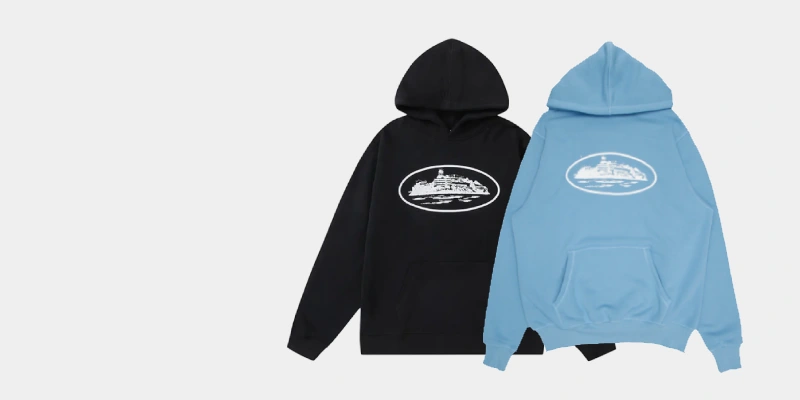Connection Between Names and Style in Today’s Generation

In every generation, the way people express themselves evolves — yet two things remain central to identity: names and style. Both act as personal signatures that reflect who we are, what we value, and the culture we belong to. From the moment someone hears your name to the clothes you choose to wear, each detail shapes perception and self-definition.
Names: A Marker for Character
A name carries meaning far beyond its sound. It connects to heritage, geography, religion, or even pop culture. In modern times, names have become a way for individuals to look prominent — whether by spelling variations, creative initials, or unique combinations inspired by global trends.
Digital tools and social media now allow people to explore how common or rare their name is. Many use this curiosity to strengthen their sense of individuality — understanding that being one-of-a-kind, even by name, carries social value. A unique name can become a talking point, a brand, or even part of one’s online identity.
Style: An Extension of Self
Fashion has always mirrored identity. In earlier decades, clothing often symbolized community or class. Today, it represents choice, confidence, and voice. Young generations in particular use fashion as a non-verbal language — communicating values, emotions, and cultural roots through what they wear.
Streetwear, particularly, has become more than just casual clothing. It’s a reflection of belonging. Wearing certain labels isn’t about following trends; it’s about expressing a stance now.
When Names Meet Fashion
Names and style intersect in more ways than we realize. Many modern brands thrive on this connection by creating strong name identities that resonate emotionally. Think about how certain fashion labels become part of daily speech, nicknames, or cultural slang.
People no longer just wear clothes — they represent entire movements. A brand name can carry as much personal symbolism as someone’s given name. That’s why consumers gravitate toward brands that reflect their own story or mindset.
Generational Shifts in Expression
Today’s generation, shaped by digital culture, values self-definition above all. Unlike older eras where uniformity was common, the current youth culture thrives on customization — from usernames to outfit choices.
They might experiment with name abbreviations, unique spellings, or handles that align with their personal aesthetics. The same approach applies to clothing: mixing classic streetwear with individual flair, customizing pieces, or even designing their own logos.
Both trends point to a deep desire for authenticity. People want to be known and remembered — not just by what they’re called, but by how they present themselves.
How Modern Fashion Define Uniqueness
Urban fashion brands have become a new language of modern individuality. These labels speak to creativity, rebellion, and unity all at once. They blur the line between luxury and community, giving voice to a generation that values comfort without losing expression.
A great example is the Crtz website, which shows how clothing has evolved into a form of self-expression. Corteiz represents independence and confidence — traits that deeply resonate with young audiences who see fashion as a reflection of identity.
This blending of name identity and clothing identity is what defines the new culture of expression. Wearing a recognizable name on your chest is a modern way of saying who you are, what you support, and how you see yourself.
Cultural Meaning Behind Names and Style
Names often reflect social evolution. Just as styles shift through generations, naming trends evolve with culture. Shorter, sharper names dominate in digital spaces because they’re easier to remember and post. Similarly, minimalist streetwear reflects the same clean, bold aesthetic — where simplicity feels powerful.
Some brands even blending traditional names or language cues into their fashion lines. This mix of heritage and modernity attracts consumers who feel connected to both their roots and contemporary life.
Personality in the Digital Era
Online platforms have magnified how names and style interact. People curate usernames, bios, and outfit posts to create cohesive self-images. Every element — from a display name to the color of a jacket — contributes to a unified personal brand.
Generation Z and young millennials are especially intentional about this connection. They understand that identity isn’t fixed; it’s fluid, shaped by every choice, every name variation, every outfit shared online.
In a world where individuality is currency, names and fashion are the twin pillars of personal branding.
Why This Connection is Important
The link between names and style highlights how deeply personal and cultural identity intertwine. Both are rooted in storytelling — one verbal, one visual. A name introduces a person; fashion completes the introduction.
Together, they form a consistent narrative: how we wish to be perceived and how we see ourselves.
In societies where individuality is often balanced against belonging, names and fashion act as the bridge. You can share a surname, a region, or even a favorite brand, yet still stand out uniquely because of how you present it.
Looking Forward
As trends evolve, this relationship between personal naming and personal styling will only deepen. New generations may redefine what “names” and “style” even mean — perhaps shifting toward digital avatars, initials, or coded identities.
But one truth remains: both our names and our fashion choices will keep serving the same purpose — to help us express, connect, and leave a mark.
From the roll call in school to the wardrobe in your closet, both names and style narrate the story of who you are. They are personal, cultural, and expressive — timeless tools for identity in an ever-changing world.
Whether you wear your uniqueness through your name or display it in your clothing, today’s generation shows that expression comes in many forms. And through every change, one message endures: distinctiveness never goes out of fashion.
